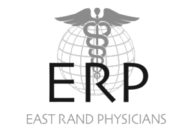What is Hypertension?
Hypertension is also known as high blood pressure. It is often known as the ‘silent killer’ because you may not be aware that anything is wrong but the damage is occurring inside your body.
Blood pressure is the force that is exerted by circulating blood against the walls of the body’s arteries. In hypertension, this pressure against the artery walls is consistently too high
What are the symptoms of Hypertension?
Most people with hypertension are unaware of the problem because it may have no symptoms or warning signs. This is why it is important that you have your blood pressure checked regularly.
When symptoms do occur they may include the following:
- Irregular heart rhythms
- Headaches (often early in the morning)
- Nose bleeds
- Vision changes
- Buzzing in the ears.
Severe hypertension can cause the following symptoms:
- Fatigue
- Nausea and vomiting
- Confusion and anxiety
- Chest pain
- Muscle tremors
What are the Risk Factors for Hypertension?
Risk factors that can be changed include unhealthy diet, lack of exercise, use of tobacco and alcohol and being overweight.
Risk factors that can’t be changed include a family history of hypertension, age over 65 years and chronic diseases such as diabetes and kidney disease.
What do the Numbers mean?
Your blood pressure reading has two numbers:
– The first number is called systolic pressure which is the pressure on the blood vessel walls when your heartbeats.
– The second number is the diastolic pressure which is the pressure on your blood vessels when the heart is at rest, or between heartbeats. The unit of measure is mmHg or millimetres of mercury.
Normal blood pressure is defined as pressure below 120/80mmHg.
| Stage | Systolic blood pressure (mmHg) | Diastolic blood pressure (mmHg) |
| Normal | <120 | < 80 |
| Optimal | 120 – 129 | 80 – 84 |
| High Normal | 130 – 139 | 85 – 89 |
| Grade 1 | 140 – 159 | 90 – 99 |
| Grade 2 | 160 – 179 | 100 – 109 |
| Grade 3 | >180 | > 110 |
| Isolated systolic | >140 | <90 |
What are the complications of uncontrolled Hypertension?
Hypertension can cause serious damage to the heart. High pressure can harden arteries and decrease blood flow and oxygen to the heart.
High blood pressure and reduced blood flow can cause:
- Chest pain or angina
- Heart attack. This occurs when the blood supply to the heart is blocked and heart muscle cells die from lack of oxygen. The longer the blood flow is blocked the greater the damage to the heart.
- Heart failure. This occurs when the heart cannot pump enough blood and oxygen to other vital organs in the body.
- High blood pressure can cause the arteries that supply blood and oxygen to the brain to be blocked or burst to cause a stroke. Brain cells die during a stroke because they do not get enough oxygen and this can result in speech and movement disabilities.
What can I do to manage or prevent Hypertension?
- Keep Active: Get at least 150 minutes of exercise a week
- Stop smoking
- Eat a healthy diet and limit the amount of salt in your diet, keep a healthy weight
- Limit the amount of alcohol you drink
- Manage stress.
In addition to lifestyle changes, some people with hypertension need to take medicine to manage their high blood pressure. There are a number of different medicines available and your doctor will advise you on what is best for you.
Remember that these medicines need to be taken regularly in order to control your hypertension
When should I see a doctor?
You should have your blood pressure checked every time you go to the doctor for a check-up. If you have any of the symptoms mentioned above then make an appointment with your doctor to have your blood pressure checked.

